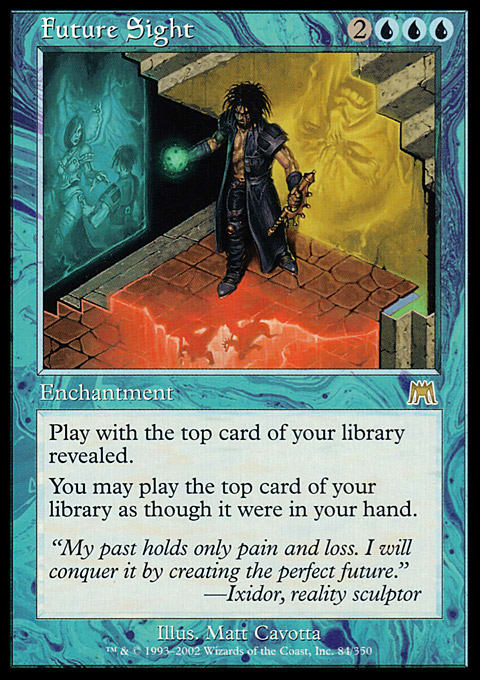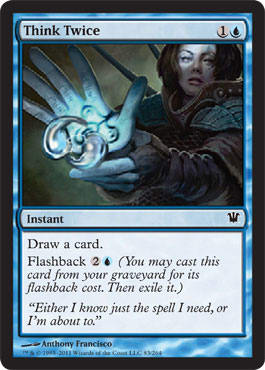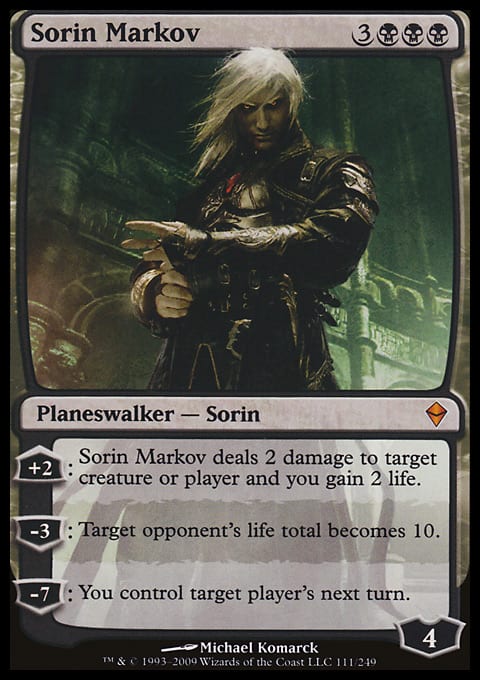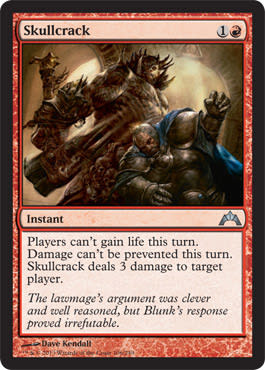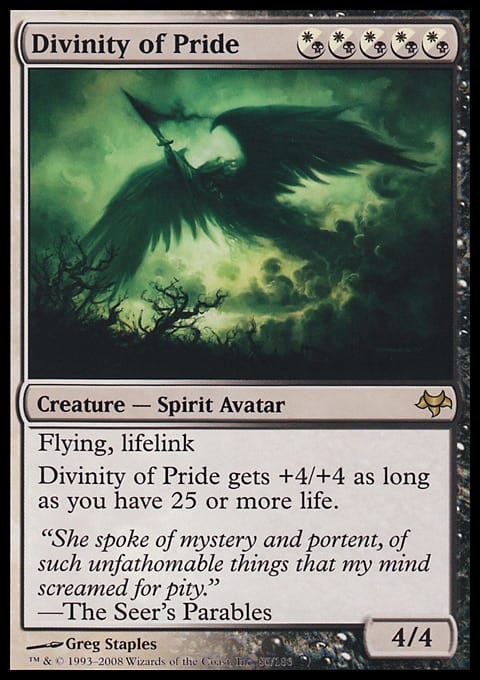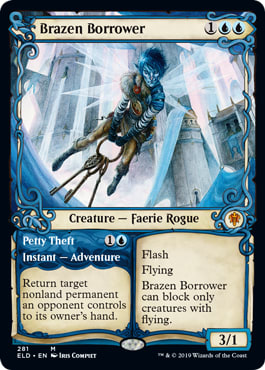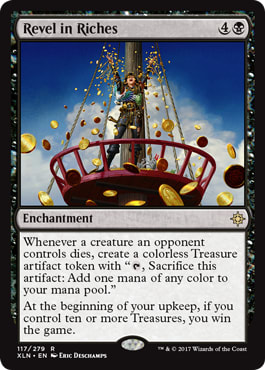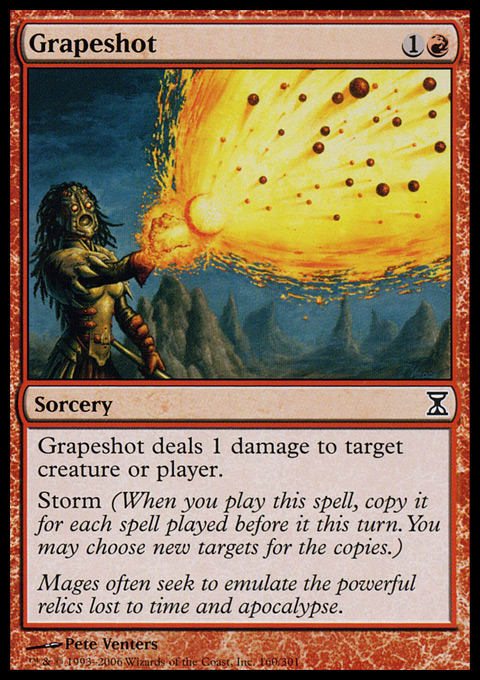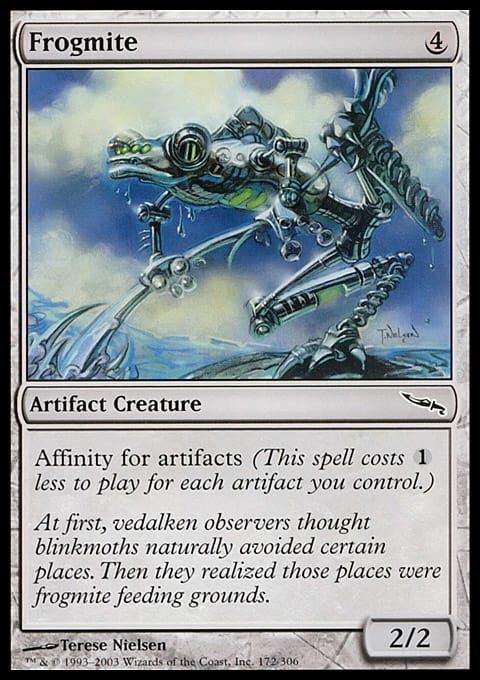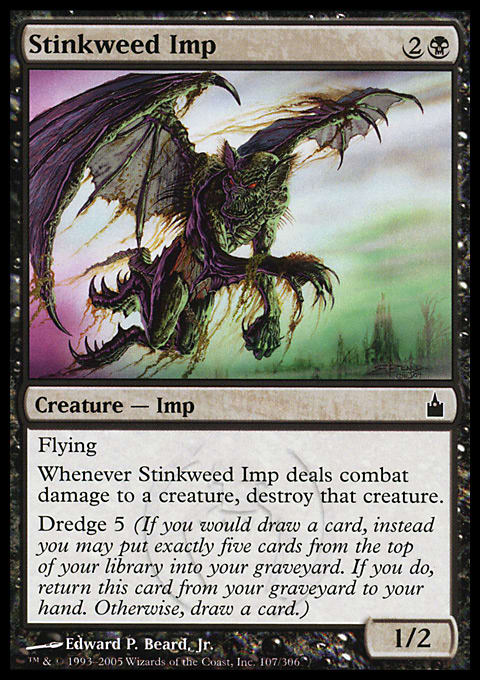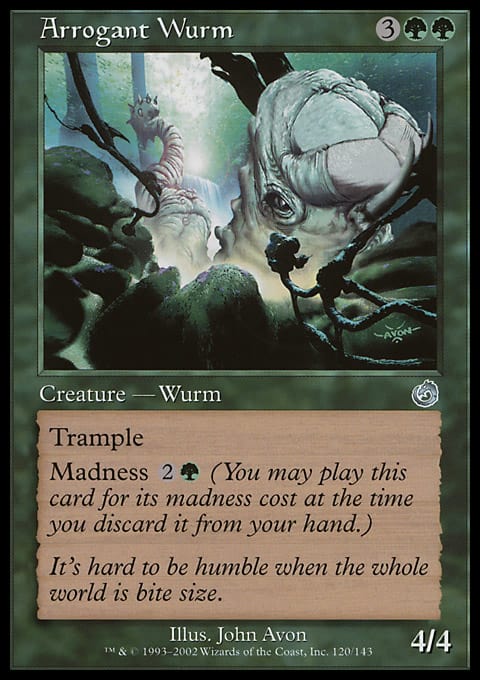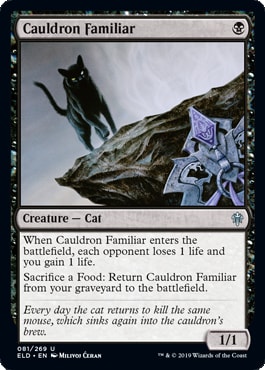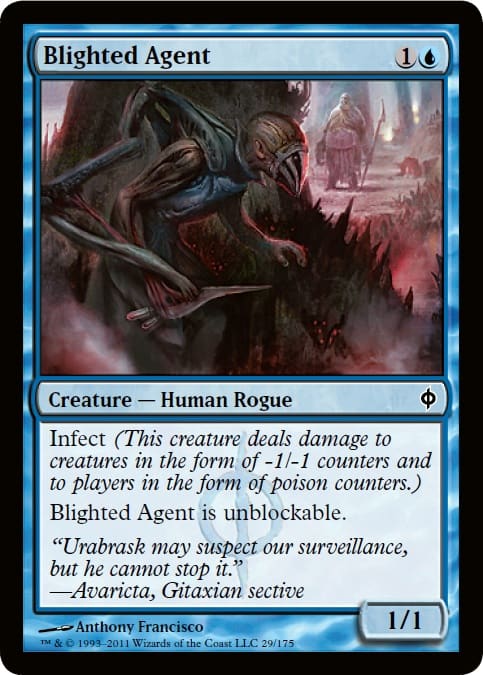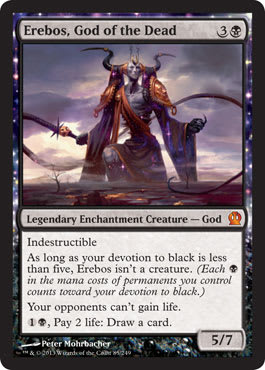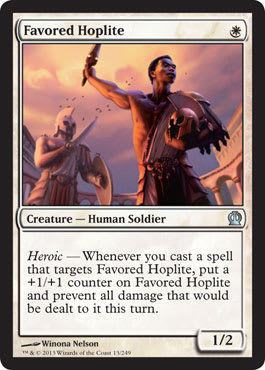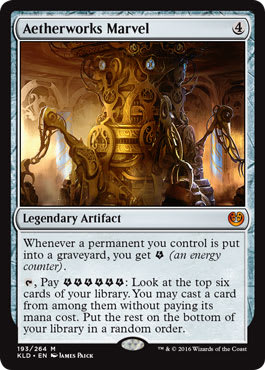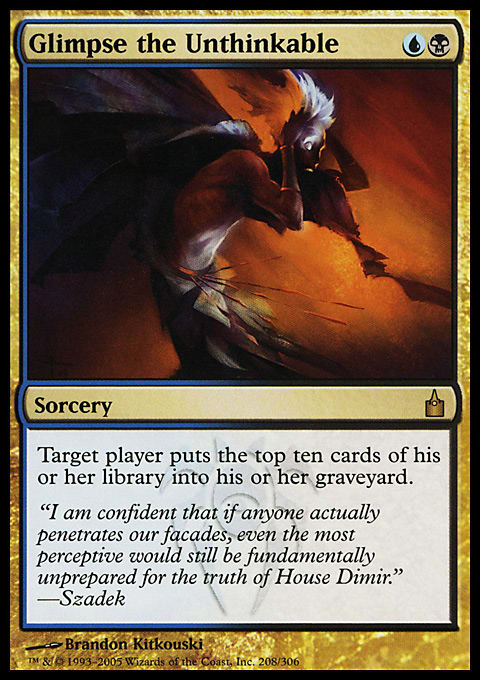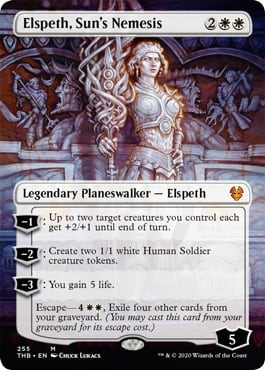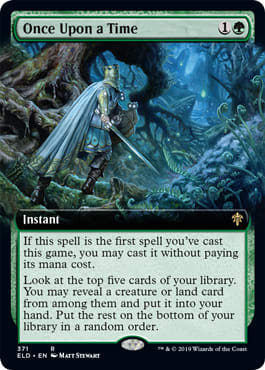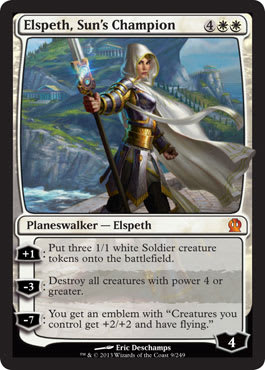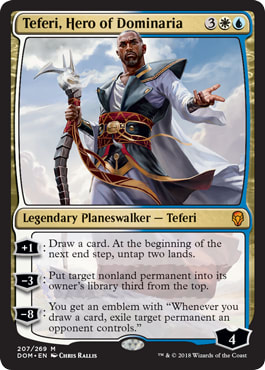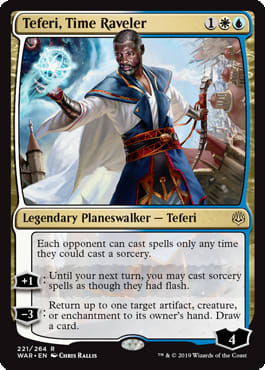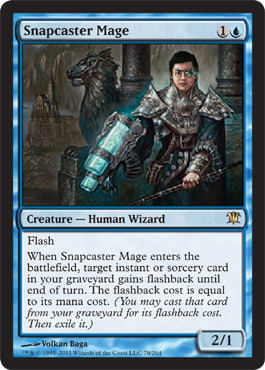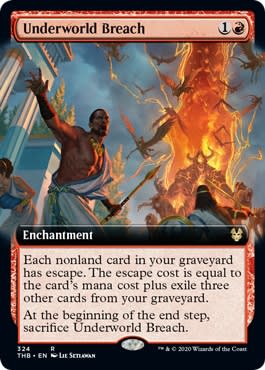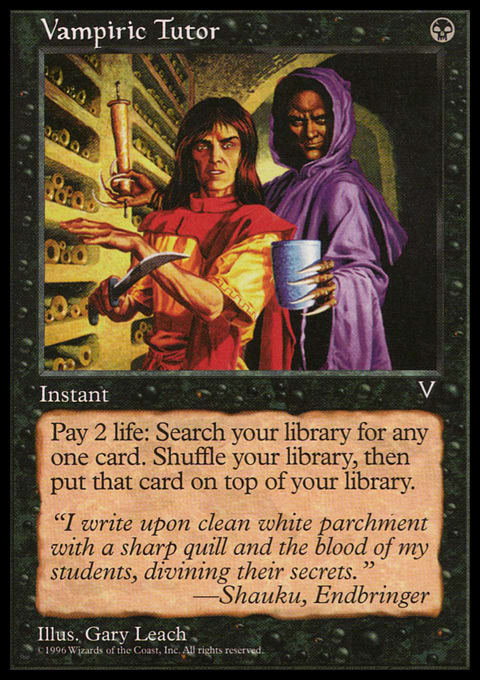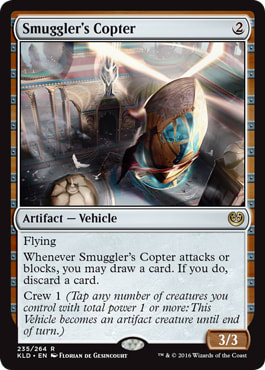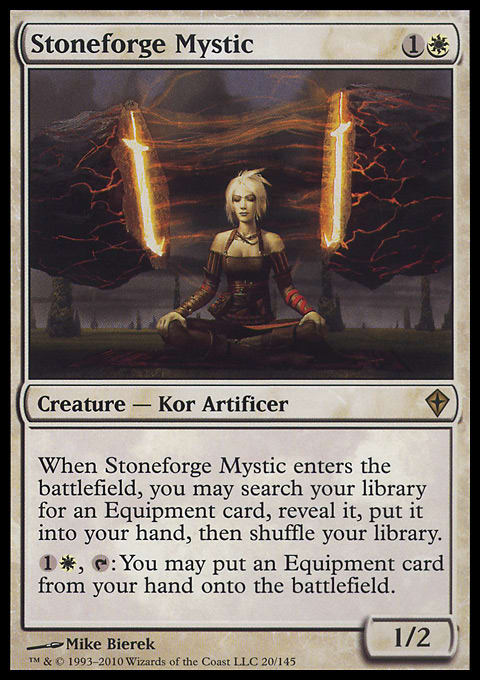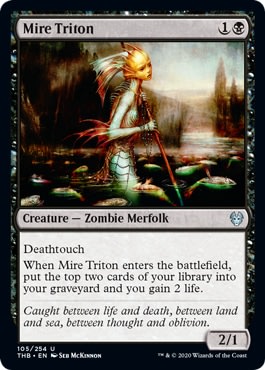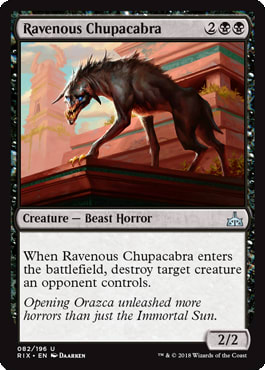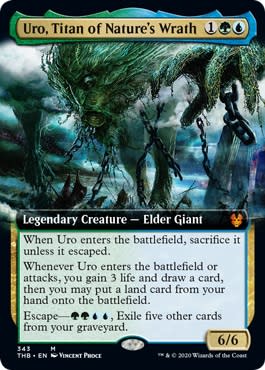Last week I did a quick ride on the complain train, but this time around we're going to get much more progressive and productive. While Magic set design tropes are generally at the decorative level of importance for the health of the game (that is to say, they have almost no importance to the greater health of Magic whatsoever), this week we're going to talk about things that could really matter in deep ways down the road if they haven't immediately.
I've written extensively about how repeating habits without examination is a bad, bad thing, so maybe it's time to give a longer look at a few of the sacred cows of our game. It's been my experience that though many Magic players, maybe even a majority, are capable of advanced conceptual thinking above that of the average "on the street" citizen, there's also a lot of clinging to arbitrary tradition going on which may match the mainstream rando.
Anyway, just...let's be flexible here.
Similar to Arthur C. Clarke's accurate submission that any sufficiently advanced technology is indistinguishable from magic, so too is the look of our game down the road, foreign to the eyes we've adapted to the here and now. Planeswalkers and Beleren font would have been too much for our ancient ancestors of 2002 to comprehend.
Speaking of the past...
Nearly a decade ago, my good friend David McDarby (now at Wizards of the Coast) and I spent extended travel time working together on what would become the somewhat mythologized Video Game Cube. Unlike the scattershot, ill-disciplined custom cards you typically find for a lark under MTGCardSmith-type urls or Google Image Searches, we spent intermittent van and plane time over the course of years curating something that would come off as "professionally developed" as it was unique. I have no doubt that some of those card experiments and discussions have varying influence on David's thoughts and philosophies at work every day, which flow their way here and there into real Magic.
How nifty! I am a proud semi-autonamous unit of information flow. Feel my #gathering energy.
Sorry, I got carried away.
Let's see if we can't put more good Magic ideas into the conjecture of the culture. Away we go! Woosh sound.
Life Expectancy
I'll start with what I feel is the most overlooked easy peezy innovation humanly possible to format regulation: starting life totals.
We should call it The Serra Ascendant Revelation: that card context can change radically with something as easily malleable as a starting life total.
Richard Garfield's Alpha gave us a whole bunch of stuff we don't use anymore. Why do we have to use twenty as a starting point all the time? It shouldn't change often, and twenty is a great guidepost, but Commander has already proven that it's not mandatory in the slightest. Best of all this is a knob on the console that doesn't change the contents of anyone's collection (in the literal sense anyway). Bans are still going to happen, but it's hard for me to imagine players so frustrated with late Standard Red Aggro decks that seem to reappear if we moved up to around 25 life instead of just waiting on another rotation.
Again, changing it often would be quite obnoxious, and I'd recommend established Standard decks of the moment get some inside play with varying test totals to see if it's even a viable option to fix what ails a given format. No matter how you slice it, though, the implementation of new beginning life totals for Magic games in a given format requires nothing but the wave of a wand in Renton and an announcement posted to a website. Other solutions do all kinds of other damage.
New Ways of Measuring High Level Ability
Though drafting is something most like to do more than they like to watch doing it - I suppose that's Magic in general, but I digress - is there any reason there haven't been more engaging formats from the status quo of high level Magic? I don't remember any complaints about the Cube portion of the Players Championship from its inaugural year, at least not from viewership.
I'm going to presume the logic was that showing off Cube is wasted stream time since those cards don't sell new set packs. Since that time, however, we've had a number of special powered up sets that all had cards typically seen in Cubes. More engaging content is the way to go no matter what you're selling anyway. They'll buy packs if they're into Magic, in general; smothering the broadcast with only the newest, hippest set doesn't really serve the purpose it's been engineered to serve.
Or how about this? A bunch of players get identical Sealed pools and then have to build the best deck knowing they're only playing against the same cards they're building with. That would take some high level Magic chops.
Nice evolutions, no?
Let's Pony Up!
The aforementioned Video Game Cube that David and I created later made me wonder if Hasbro had the coffers or the clout to either outright buy some intellectual property rights or partner with other entertainment mega powers to release special limited edition sets that pay tribute to, well, you saw the My Little Pony promotion.
Basically more of that.
I want to draft an official Simpsons set designed by the people that would've worked on the next Un- product. I want to refresh a web page with horrific anxiety, concerned I won't get one of the only thousand made special WotC-stamped authentic Dr. Who Cubes, curated from the Gavin V himself.
Even just using art rights to produce super unique Star Wars or Rick and Morty promos would generate hype the likes of which we haven't seen since they finally smartened up and told that Mike Long fellow he couldn't cough cards into play anymore when playing for money.
Open your checkbook, Hasbro. We know you got it.
Mechanic Panic
Forgive me if someone has tackled this recently (or ever), but ask yourself this question: What percentage of the time do we want one of the best three or four decks in Standard to be a showcase for a set's marquee mechanic?
This is a question that all the Magic experience in the world won't get me a decent answer to without being inside the walls of Wizards of the Coast and having a ton of hours on a design or development squad. But I think it is a very relevant thing to think about.
Mark Rosewater has said in the past that players love new mechanics to play with from set to set - it makes total sense: Players want new problems to solve, and distinct set mechanics give sets an enormous amount of their identity to players - but I wonder how much crossover there really is between these two statements:
- Players love and want to solve new problems with new mechanics.
- Players want new mechanics to be pushed to the point of top level competitiveness in Standard on a consistent basis.
Again, I'm not sure what the answer is here, but I think it's a good conversation to have. New mechanics are intrinsically less well understood than older mechanics. This is why pushing a showcase mechanic is so inherently dangerous: if the calibration is wrong...
Of course, sometimes they don't make a Constructed appearance at all. Again, I'm not sure where I stand here. I'd love to hear what more people think on this at all levels of Magic comprehension.
Three of a Kind
I've written about it at length, I've written about it in brief. I've dreamed about it being tattooed on a squirming creature of unfathomable horror and complexity, as I watched on, helpless to stop the madness that wriggle before me, in me, about me.
Where was I? Oh right. I've suggested moving the playset number from four to three previously.
People love Commander because they're not having to play against the same cards every game. Three as the definition of a playset would do good things to the Magic market, it would make more decks playable, it would make more cards playable, and it would increase the shelf life of cards that players typically get annoyed by after a few games.
Tom Ross endorsed it - or at least endorsed that it was worth contemplating and experimenting with - before he did work for Wizards of the Coast. I would be very interested to hear his thoughts on the matter now that he's gained a wealth of insight from those experiences.
Story Versus Game Disconnects
There's a weird tension I have on this one: Recently, I had the happenstance fortune (if you're into that kind of thing) of thanking Mark Rosewater for his work personally. I also have a memory for a few years back when I believe someone asked Mark about something relating to The Gatewatch plotlines? Anyway, Mark didn't take it well and went to the defense of the creative people he works with, as should be his instinct - I do remember being confused as to why the instinct came out of the question asked, though.
Anyway, sorry, but we're still using mascots. Elspeth isn't a deep character no matter how many hours granted her if the entire story tension is about her "death," when every Magic game since basically Yawgmoth's Will has actually shown us that not only is death not a thing worth fearing in Magic -Innistrad may be an exception because of the atmospheric and experiential factors, but by and large, life insurance policies are a garbage business model in The Multiverse since nothing stays dead for long, ever) - but that it's often advantageous to be dead or have something die for the player's benefit or letting a Squirrel get eaten by a Dragon so it doesn't harm you.
She's not there because there's an organic story to be told; she's there to look a certain way to appeal to a certain market to sell Magic packs. And that's fine! That's how stuff goes! No need to get defensive about the silliness of it all, though; let's not act like the story is super important or coherent just because it had a lot of funding and good work by smart, creative people went into it. It doesn't make any sense and thus, it has no emotional core.
So as long as we're agreeing that it's part of the Magic experience's ancillary decoration and not at the functional crux of the gameplay experience, we can go ahead and stop printing cards in the realm of Emrakul, the Promised End and Gideon, Ally of Zendikar. No matter how much amazing creative art by community goes into the cards, once we have it in our hands, it's a Magic card just the same way Dark Confidant and Mountain are Magic cards: it has to serve gameplay before, during, and after everything else.
Hey, do you guys think they'll ever go to a plane where they exile people to graveyards? Will they have to have cards that are technically in both zones at the same time? Maybe they'll call it "Zoneling..."
Is this thing on?!
Unrestricted Restrictions
This is another one I have touched on briefly in passing, but here's the scoop:
There's no reason that the successful experiment of restricting cards to one copy allowed per deck in Vintage shouldn't be applied to other formats, including Standard, by now.
Imagine the Standard cards that could have been potentially "saved" by this change:
And then think about other formats! What a wonderful world it'd be!
Last but never least:
Patrick Sullivan is Still Right
Maybe it's exactly where they want it, which isn't the end of the world, but it seems that the sentiment that the game should move further back from the Flametongue Kavus of the world (and there are now many) and into a world where experiences like casting and then later attacking with a Lyra Dawnbringer can exist more often is still very much out there and wanting.
Where should R & D aim on this front? Is it too late to "go back" or is it merely a matter of turning more knobs sooner rather than later?
What even is Magic, really?
(~_^)
The Rascal
The Indestructible Danny West














